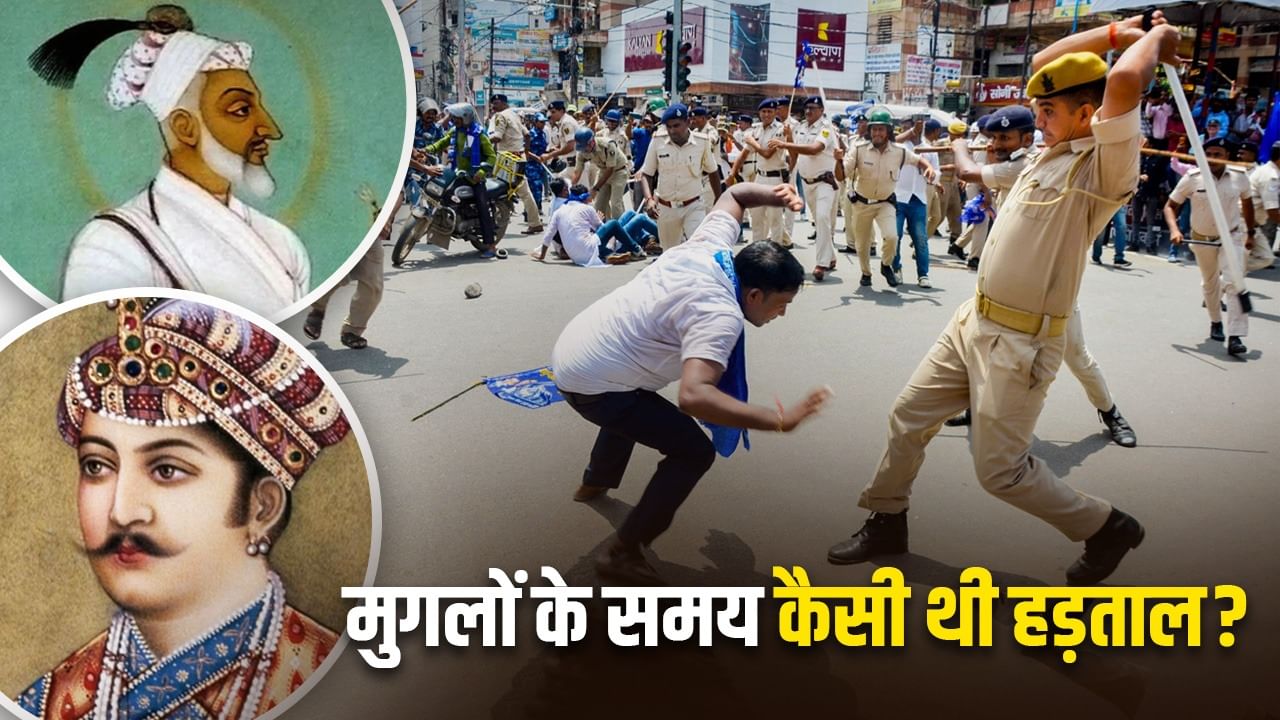There was a strike during the Mughal era, but the way of expressing its manner was slightly different.
Trade unions and farmer organizations in the country have announced a strike across the country today (July 9, 2025). More than 25 crore people will be on strike across the country to protest against labor laws and privatization. This is expected to affect banking, postal services and public sector companies. Labor organizations are demanding to increase minimum monthly salary to 26 thousand rupees and restore old pension.
In fact, the strike is a medium to pressurize the governance on its demands, which has been going on for centuries, not from today. But was there a strike even in the Mughal era? If not, how did artisans and laborers protest? How was the attitude of the emperor and in which emperor, dissatisfaction flourished? Let’s try to know.
How was the way of strike in the time of Mughals?
The next year of the first freedom struggle of 1857, the British had taken power from the Mughals. And the first known strike in India took place in 1862. In such a situation, it is obvious that the strike was not practiced to protest against the Mughal reign. In fact, before the arrival of the British, there was no system of trade union or workers’ organization in the country. In such a situation, there was no organized strike. But this also does not mean that power was not opposed. Even during the Mughal rule, laborers, farmers, artisans and business classes used to register their protest in a state of dissatisfaction. Especially the landlords used to torture the workers and farmers, then they were also opposed.
Workers and artisans used to stop work many times to protest in the time of the Mughals. The craftsmen of Kashmir, Banarasi weavers and Rajasthani sculptors had stopped work collectively during the Mughal period when uncomfortable situations arose. When it seemed that they were being worked on inappropriate terms, many times laborers and artisans also migrated. The arbitrariness of a landlord or governor was out of tolerance, then the migration was more. At that time, religious sects were a better medium of refuge and opposition. That is why people used to go to his shelter too.
Aurangzeb or Akbar, how did the strike stop?
Akbar has always been considered a liberal king. Therefore, his attitude for farmers, laborers and artisans also remained generous. To stop the arbitrariness of the landlords, he took many measures and started a system of land settlement etc. Jahangir also made judicial reforms during his reign and Nur Jahan herself listened to the problems of the people.
Aurangzeb was staunch according to his image. He used to demand more tax to compensate for the loss of the royal treasury due to spending a long time of his life in battles. As a result, the landlords used to torture farmers and laborers.
During the reign of Aurangzeb, there was many dissatisfaction with the policy of intolerance to another religion. The system of taxation on people of other religions also caused dissatisfaction. Since Aurangzeb reinstated non -Muslims and restored it. The industries associated with alcohol, music and painting were banned. Therefore, the most dissatisfaction also flourished during Aurangzeb’s reign.
Where was the first strike in India?
First of all, we know why there is a strike? In fact, there are many reasons for this. The first reason is economic benefit. Many times a strike is done to demand better salary or remuneration. Apart from this, the environment of working in other reasons, excess of work hours and demand for security etc. during work, security in jobs and discrimination etc. can also be the reason for strike.
The history of strike in India is quite old. This is the year 1862. During the British rule, a strike was held in 1862 at Howrah station on the other bank of Hooghly River near Calcutta (now Kolkata) in West Bengal. This is India’s first known strike. The reason for this strike was the time of work. 1200 employees of the railway stationed at the station then went on strike demanding eight hours of work.
After this, after independence in the major strikes, there is a mention of the strike of the railway employees of 1974. Then 17 lakh railway employees went on strike for 20 days and it is considered to be the biggest strike in India so far. In the year 1984-85, coal miners also went on a very long strike in the country, which had a great impact on the country’s economy and politics.
Also read: Who has the right to call India bandh, who is responsible for violence?
